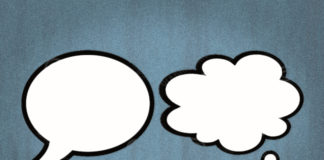Tag: Depression
Antidepressant Effects Thwarted by Stressful Environments
A new study, about to be published in the journal Brain, Behavior, and Immunity, investigates the role a stressful environment plays in antidepressant effectiveness....
Garbage In–Garbage Out: Systematic Reviews and Meta-Analyses can tell us a...
Well known Stanford University researcher John Ioannidis published a new paper this week criticizing the use and production of systematic reviews and meta-analyses, often...
Review Calls for Critical look at Prescribing Antidepressant Drugs
The August issue of Psychotherapy and Psychosomatics published a review conducted by André F. Carvalho and colleagues regarding the literature around the long-term use...
Review Finds Link Between Recession and Mental Health Issues
A literature review published in BMC Public Health by researchers from Portugal and the Czech Republic summarizes results from 101 studies investigating the effect...
My Pharmaceutical Reincarnation
I lost almost four years of my life, and I’ve not a doubt that it was due to those “life-saving” pills. To that end, they did work. At a time when I was doubled-over with depression, those four prescriptions kept me alive. But then they killed me slowly and brought me back as a stranger.
Antidepressant Use in Pregnancy Increases Risk of Preterm Birth, Latest Review...
Antidepressant use during pregnancy has been associated with a number of fetal and developmental complications. The latest meta-analysis of the effect of SSRI antidepressants...
Who Will Guard the Guardians of Psychiatry?
The assertion that the so-called antidepressants are being over-prescribed implies that there is a correct and appropriate level of prescribing and that depression is a chronic illness (just like diabetes). It has been an integral part of psychiatry's message that although depression might have been triggered by an external event, it is essentially an illness residing within the person's neurochemistry. The issue is not whether people should or shouldn't take pills. The issue is psychiatry pushing these dangerous serotonin-disruptive chemicals on people, under the pretense that they have an illness.
“Is Depression an Illness? Or Part of the Human Condition?”
Psychotherapist Chantal Marie Gagnon voices her frustration with social media posts and stigma reduction ads that perpetuate the belief that all mental health issues...
“Heal the Artists, Save the World”
Kelly Brogan, MD, writes: "Maybe your depression, chronic fatigue, ADHD, and chemical sensitivity are just ways that your body, mind, and soul, are saying no....
In Honor of Fear and Pain
Our use of antidepressants has turned single-episode struggles that recovered 85% of the time within one year, never to recur, into chronic and debilitating disorders that hold patients hostage in their own arrested development. But, If you are in the hole of pain, here’s what I have to say to you. It’s what I say to my patients, and what I tell myself in times of struggle.
Daughter of a Psychiatrist
Here I was, 15 years old and already in a long-term treatment facility. I was, on paper: crazy! This entire time, all the adults in my life had been speaking for me. I never felt like I was any of the things they said, but I went along with it. What else could I have done? Every time I rebelled, it only confirmed to my mother what she thought of me.
Report from the Parliament: Can Psychiatry At Least Be Curious?
In the past six years, I have had the opportunity to speak at several conferences or meetings that I felt had particular potential to stir some political activity that would challenge current psychiatric practices, and one of those events was the meeting convened in the U.K.’s Parliament on May 11th, which had this title for the day: Rising Prescriptions, Rising Mental Health Disability: Is There a Link?
Group Mindfulness Shows Promise Reducing Depression Associated with Hearing Voices
A new study out of Kings College London found that twelve sessions of a group mindfulness-based therapy relieved distress associated with hearing voices while reducing depression over the long-term. The person-based cognitive therapy (PBCT) intervention had significant effects on depression, voice distress, voice controllability and overall recovery.
Intensive Care Patients at High Risk for PTSD, Psychiatric Symptoms
People who survive life-threatening illnesses in the intensive care unit (ICU) of a hospital are at high risk for depression and anxiety and nearly...
The MD and the Imaginary Eating Disorder
He could have asked me if there was a specific event that had precipitated my suicide attempt. He could have asked if I had a history of trauma. He could have simply asked, “What happened?” “What are you feeling?” or “So what’s going on?” Nope. He chose to open our meeting with an accusatory remark about a make-believe eating disorder.
The Psychiatry Sandcastle Continues to Crumble
Psychiatry would long since have gone the way of phrenology and mesmerism but for the financial support it receives from the pharmaceutical industry. But the truth has a way of trickling out. Here are five recent stories that buck the psychiatry-friendly stance that has characterized the mainstream media for at least the past 50 years.
“Court Orders Electroconvulsive Therapy for Girl with Depression”
The Irish Times reports that a judge has ordered ECT for a 16-year-old with depression and an eating disorder. The doctor asked the court...
Victim Blaming: Childhood Trauma, Mental Illness & Diagnostic Distractions?
Why, despite the fact that the vast majority of people diagnosed with a mental illness have suffered from some form of childhood trauma, is it still so difficult to talk about? Why, despite the enormous amount of research about the impact of trauma on the brain and subsequent effect on behaviour, does there seem to be such an extraordinary refusal for the implication of this research to change attitudes towards those who are mentally ill? Why, when our program and others like it have shown people can heal from the effects of trauma, are so many people left with the self-blame and the feeling they will never get better that my colleague writes about below?
Meditation + Exercise = ↓ Depression
A study released in Translational Psychiatry reports that "Although previous research has supported the individual beneficial effects of aerobic exercise and meditation for depression, these findings indicate...
The Drug-Free Solution to Ending Depression
First, let me tell you that I was once a typical doctor, not to mention a typical American who loved pizza, soda, birth control, and ibuprofen. I believed in the science that I was taught to believe in. I felt that medication was the answer. And that symptoms were problems that needed to be fixed, suppressed, eradicated. That every patient was just one chemical prescription away from functioning “normally.” It wasn’t until my fellowship specialized in medicating pregnant and breastfeeding women, at a time when I was also pregnant, that I began to feel into a voice inside me that said, “I’m writing prescriptions that no amount of reported ‘safety data’ could convince me to take."
Family Oriented, Home-Based Treatment Best for Youth with Symptoms of Psychosis
A pathbreaking new study out of Finland suggests that early intervention programs for youth experiencing psychotic-like symptoms may see the greatest improvement when treatment works within the home rather than in a hospital setting. The research, to be published in next month’s issue of Psychiatry Research, found greater improvement in functioning, depression, and hopelessness among teens in a new need-adapted Family and Community oriented Integrative Treatment Model (FCTM) program.
Gender Wage Gap and Depression/Anxiety
When women receive less pay than men for the same work, they were about two and a half times more likely to "have major depressive disorder," and about four times more likely to "have generalized anxiety disorder" than their male counterparts. But when women were earning more than men, the odds were 1.2 and 1.5 respectively. The use of psychiatric terminology ("major depressive disorder" and "generalized anxiety disorder") constitutes something of a barrier to communication here, but the general message is clear: people (in this case women) who are routinely treated unfairly and discriminately are more likely to be depressed and anxious, than those not so treated.
Why Screening Everyone for Depression is a Terrible Idea
Too many people have come to view themselves as defective and powerless to change their life situations, when this may not be the case. Conversely, individual treatment with drugs or psychotherapy may cause individuals to reframe their problems in terms of neurochemistry or thinking styles – internalizing a belief that they are the problem, when their problems exist in a wider sociopolitical milieu.
“Warning Over Ketamine Use for Depression”
The Daily Telegraph reports on a warning published in the Medical Journal of Australia that urges doctors not to “jump the gun in prescribing patients the drug ketamine to treat depression.”
“Silent” Forms of Child Abuse Strongly Tied to Depression
Psychological abuse and childhood neglect are strongly associated with depression in adulthood, according to a meta-analysis of childhood trauma and depression published in this month’s issue of the Journal of Affective Disorders. “The findings clearly highlight the potential impact of the more ‘silent’ types of childhood maltreatment (other than physical and sexual abuse) on the development of depression,” the researchers conclude.
















